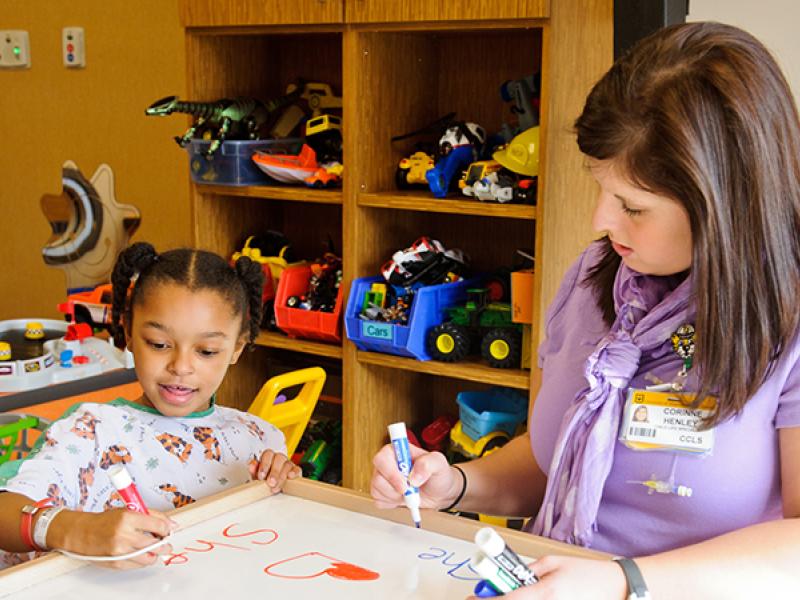The fourth year of the MU Psychiatry Residency is comprised of two months of inpatient care at MUPC, two months on the psychiatric consultation liaison service, two months of telepsychiatry through Compass clinics, and six months of electives! During the fourth year, there are no mandatory weekend long call shifts, which are required during the first three years of residency.
Fourth year residents participate in advanced didactics on Wednesday afternoons. On inpatient psychiatry services, a fourth year resident often works closely with first year residents and medical students as a supervisor while following their own patients. The telepsychiatry visits with Compass are very similar to those of the third year in that the resident works with a different clinic each day. Some of the clinics are walk-in crisis visits, while others have scheduled clients in a transitional care facility.
To set up an elective, a resident selects a faculty member who serves as the supervisor for the chosen service. The elective is subsequently approved by the Residency Program Director. Fourth year residents are able to choose from a variety of clinical and research-based electives. Some examples include psychotherapy, adolescent eating disorders, substance abuse, forensics and women’s mental health. Dr. Ithman is in charge of the neuromodulation elective which allows residents to gain firs-thand experience in ECT, TMS, and ketamine infusions for patients in the inpatient or outpatient settings. Other elective options include research and teaching electives. Ultimately, the electives are geared toward advancing knowledge in an area of interest. We are also allowed to do electives at different organizations after approval from both sites.
Moving from PGY-3 to PGY-4, our residency program really prepares you for what your life will be beyond residency - be it fellowship or getting a job.
The fourth year of residency is a busy and stimulating year at Mizzou, and one that is tailored to allow residents to pursue their individual and unique goals, as well as hone their skills in leadership. We get the chance to see what being a supervising resident is in practice, while we interview for fellowships and jobs. The faculty and staff support us in all our choices, and are always ready to give guidance and advice in making life and career decisions.
One of our fourth year residents is also chosen to be an Educational Chief who primarily focuses on academics and the teaching of residents and med students. Also, a wellness chief is chosen to organize activities to cater to resident wellness while also working in areas like financial planning, physician impairment and mental health resources.
- Scott Brenner, DO





